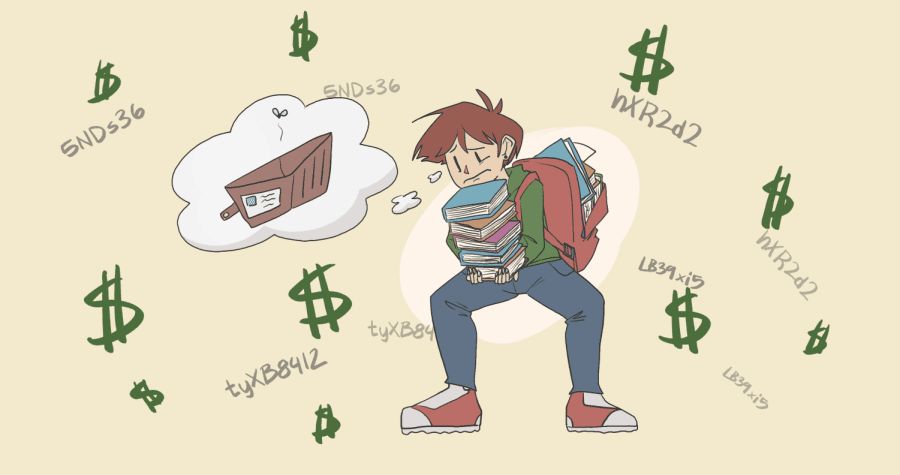Opinion | Textbook piracy is morally justified
August 31, 2022
The semester has begun, and it is evident from the long lines and empty shelves at the Illini Union Bookstore that textbooks are in high demand.
The beginning-of-the-semester scramble to purchase textbooks is a harrowing and financially draining experience for students across the nation. The average full-time undergraduate student pays around $1200 for books and supplies in one academic year.
Historically, students have attempted to cut down on these costs through multiple avenues, such as buying used textbooks or renting copies. One very popular — albeit unlawful — avenue amongst students is downloading PDF copies of textbooks from illegal sites online — also known as textbook piracy.
Copyright infringement, which textbook piracy falls under, is illegal and can result in fines ranging from $750 to $30,000, according to 17 U.S. Code 504.
Although pirating textbooks is against the law, textbook publishing companies have been financially exploiting students for decades — they are the criminals hiding in plain sight.
Get The Daily Illini in your inbox!
The textbook publishing industry made $7.85 billion in revenue in 2020 alone, and this market is dominated by the “big three” publishers: Pearson, McGraw Hill and Cengage.
Publishing companies take advantage of the fact that college students are a captive market since they are obligated to buy textbooks for classes and do so by drastically marking up textbook prices. Outrageously, college textbook costs have risen by 162% since 2000, which is more than three times the amount of the average increase for all goods and services, even after accounting for general inflation.
It’s no wonder that students resort to illegal measures to access textbooks, since saving a little goes a long way in college, and books and supplies are a supplemental cost on top of already expensive college tuition.
Publishers are robbing students blind. Pirating a textbook should not be considered the same as pirating a new show or movie, since students have no choice but to use textbooks for learning in college and getting a degree.
Another unfortunate development in the textbook industry is the popularization of online learning platforms such as Cengage’s Webassign or McGraw Hill’s Connect. These platforms require students to purchase access codes to work on graded assignments for a class — if a student cannot afford the (often expensive) access code, they are presented with no other solution than to drop out of the course or settle for a lower grade.
These online platforms also block students from looking for cheaper alternatives, so downloading PDFs, renting books, buying used copies or borrowing from a library are all out of the question.
Measures such as these only work to add another layer of unaffordability to higher education and render it inaccessible for financially disadvantaged students. Students should be able to access textbooks any way they can — even if it is through methods the law would frown upon.
Aparna is a sophomore in LAS.







